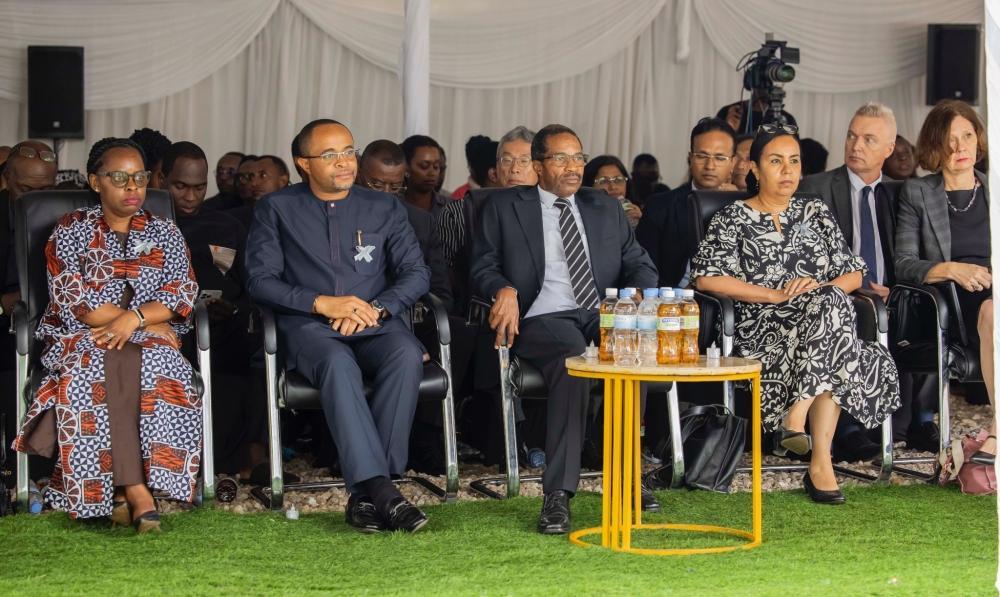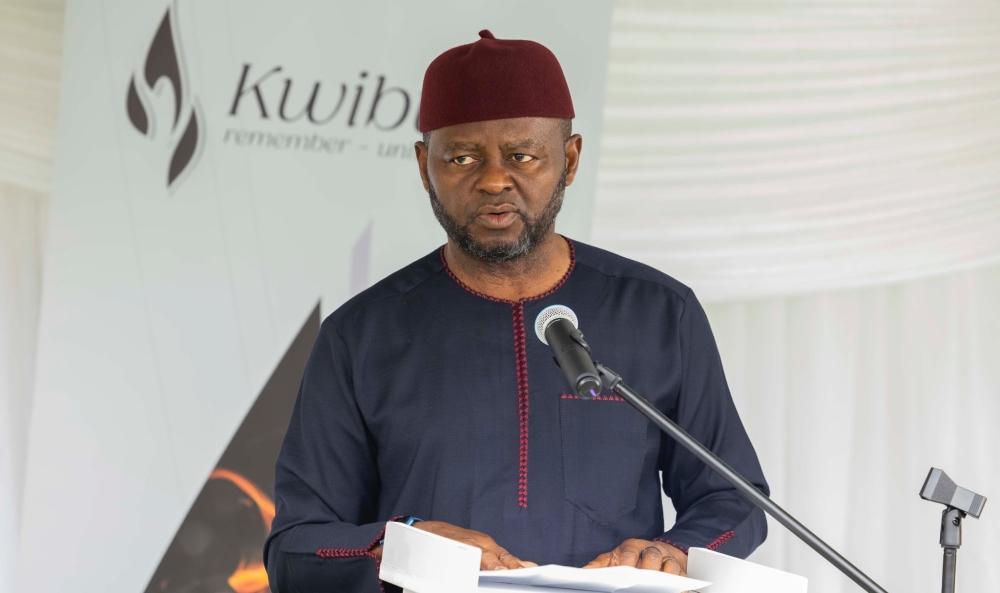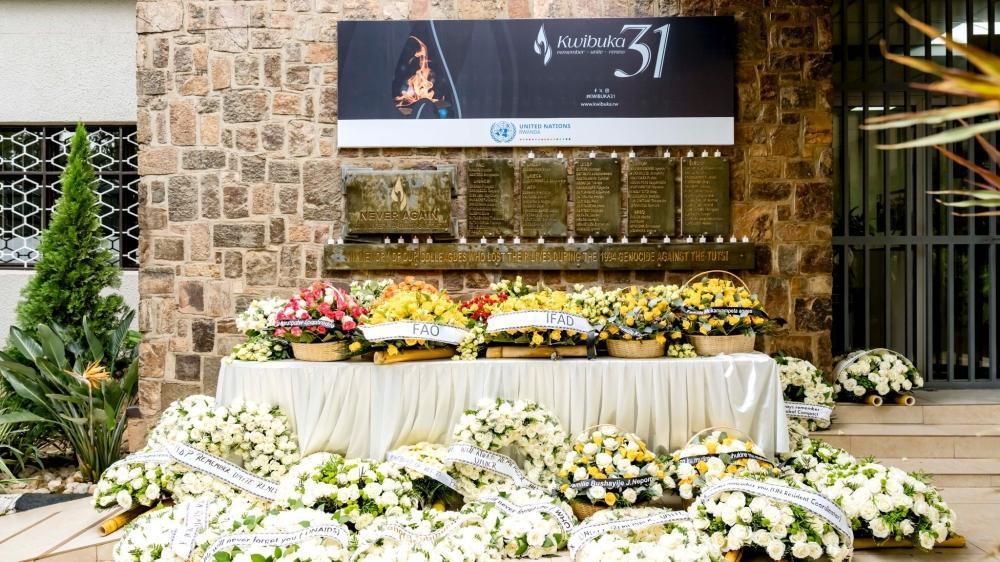Africa-Press – Rwanda. Staff members of the United Nations agencies in Rwanda paid their respects to 68 former UN personnel who were killed during the 1994 Genocide against the Tutsi, as they commemorated the massacre on Wednesday, April 30, in the City of Kigali.
They renewed their commitment to the Never Again slogan to ensured it does remain in words but translates into actions.
The commemoration event, held at the UNDP compound in Kiyovu, Nyarugenge District, was also attended by families of the deceased former staff, government officials, and members of the diplomatic corps among others.
The 1994 Genocide against the Tutsi claimed more than one million lives in just 100 days. On every April 7, Rwanda and the world observe the International Day of Reflection in the Genocide against the Tutsi, marking the beginning of 100 days of commemoration.
Ozonnia Ojielo, the UN Resident Coordinator in Rwanda, said that what happened in Rwanda 31 years ago marked one of the darkest chapters in human history.
“Unfortunately, it did not happen by accident, neither was it unforeseen nor unpreventable,” said Ojielo. “This nation was failed and abandoned. That is why when we say never again, we must be intentional in ensuring that these are not just well-framed lines, but they are translated into actions.”
He noted that each step counts in making the global commitment a reality. The UN official commended the Rwandan leadership and the people for choosing the path of unity over division, and reconciliation over hate and grudge, without which the country would have never recovered from the impact of the Genocide
“Without the courage and determination of the people of Rwanda to choose living together in harmony, in peace, and agreeing to collectively work together to rebuild and to renew, Rwanda would not have risen from the ashes to be the beacon of hope that it is in all of Africa today,” he said.
Ojielo extended appreciation to the families of UN staff who lost their lives during the Genocide and stood in solidarity with the surviving relatives who “continue to carry the weight of the absence of your loved ones.”
“Together, we honor the lives that were taken from all of us and we reflect on the immense suffering, but also the unwavering resilience of those who survived and those who represent them today. Your strength and courage will continue to inspire all of us, and we are forever indebted to you for your sacrifice and your perseverance.”
Countering disinformation, hate speech
Ojielo noted the need for collaboration in a renewed global push to ratify and fully implement the Genocide Convention while strengthening prevention mechanisms, educating new generations about past genocides, and countering the narratives and disinformation that fuel hate speech and genocidal intent.
He highlighted that the UN system recognized the failure of the international community to prevent or to effectively respond to the Genocide against the Tutsi, pointing to the acknowledged collective responsibility and commitment to prevent such violence and atrocities.
“The lessons learned from the 1994 Genocide against the Tutsi are a stark reminder of the consequences of hatred, intolerance, discrimination, exclusion, and indifference,” Ojielo said. “We must remain vigilant in confronting the root causes and drivers of conflicts as well as violence.”
He commended the resilience and determination of young Rwandans in rebuilding the country despite the weight of intergenerational trauma.
Veneranda Ingabire, the Director of Memory and Genocide Prevention in the Ministry of Unity and Civic Engagement, said that when Rwanda was left on its own in 1994, its people decided to take their destiny and to build the nation of their choice, based on a shared identity, free of ethnic division.
“Today, a whole new generation stands firm to the ownership of a tragic past and painful history, from which we found the necessary strength to stand strong and optimistically look ahead with our hearts and souls committed to Never Again,” Ingabire said.
She thanked the partners who have been instrumental in the journey of reconciliation and rebuilding of the nation.
Despite these great achievements and solid unity and resilience foundations, she said, Rwanda and the region still face challenges arising from the Genocide against the Tutsi.
“The genocide ideology that saw the extermination of Tutsi in Rwanda is being spread by perpetrators who fled into neighboring countries and abroad, and have been supported by some countries like DR Congo, which cover up the sedition of killings of the Congolese Tutsi.”
Ingabire noted that the Genocide is being distorted to fit into the current narratives, trivializing consequences and sanitizing its perpetrators.
“It is our collective responsibility to ensure that what happened 31 years ago never happens again. I appeal to everyone gathered here to recall our shared responsibility to combat Genocide ideology and denial. Let Never Again be a reality.”
The event also featured the laying of wreaths by officials and families of the victims in honor of the UN staff killed during the Genocide.

For More News And Analysis About Rwanda Follow Africa-Press








